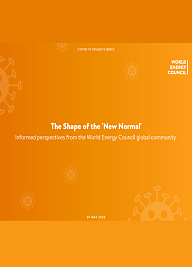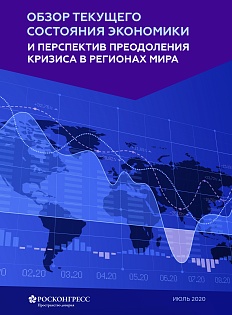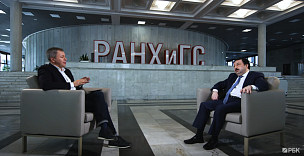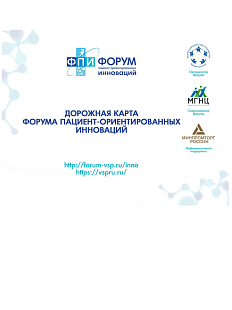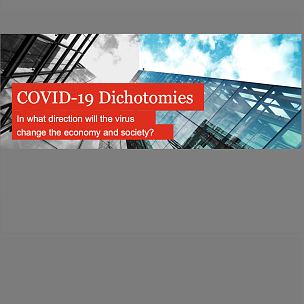The World Energy Council published the survey results about perspectives on the long-term implications of COVID-19 and structural shifts that will shape the ‘new normal’ in a post-pandemic future. Energy development scenarios and mechanisms to adapt to unstable economic conditions — all of these issues will form part of the business programme at the World Energy Congress in St. Petersburg in 2022. The event is organized by the World Energy Council, the Russian National Committee of the World Energy Council and the Roscongress Foundation.
As COVID-19 continues to spread around the world, its impact is cascading from society to the economy, to global trade, and energy systems. An increasing number of governments, are adopting stricter measures to delay the spread of the virus and ‘hammer down the peak’ of infections.
The control of spread in some countries offers hope that there is an end in sight. Even so, unpredictable uncertainty creates new anxieties about the deeper and long-term impacts of the crisis. Even as citizens, communities, companies and countries learn to cope with the impacts of and learn new practices for dealing with this global pandemic, it is also vital to start to prepare for new and different realities that may emerge in a post-COVID-19 world.
To help our members and their wider communities pull together, the World Energy Council is developing a set of post-crisis scenarios, which explore what the future after COVID-19 might look like and to help energy leaders to prepare, rehearse and shape a better future.
The Council is conducting a global community Pulse Survey and series of discussions with regional experts to gather informed perspectives of the energy sector on whether there will be a return to ‘normal’ or a ‘new normal’ and when.
This brief* presents key findings from our community Pulse Survey focused on perspectives about:
1. SOCIAL SHIFTS
2. ECONOMIC DISRUPTIONS
3. ENERGY SYSTEM IMPLICATIONS
4. ENVIRONMENT AND ENERGY TRANSITION
*The survey remains open for continuous tracking of shifting perspectives of the global community. The findings in this document are based on responses received from 28 March to 22 April.
A new normal for energy may be emerging from the COVID-19 crisis
CERTAINTY ABOUT UNCERTAINTY
45% of respondents see societal resilience as a major critical uncertainty, almost twice as many (75%) consider the implications on the global economy to shape the post-crisis world.
Discussions of a return to ‘normal’ and the prospect of a ‘new normal’ have started. The global economy, social resilience and uncertainty on epidemiology and medical response are seen by respondents from our global community as the most critical factors that will shape the post COVID-19 future.
Greatest Impact
Economy (87%), society (95%) and energy systems (84%) will be impacted for at least 12 months.
Our community anticipates different time horizons for the duration of the impact of the pandemic on society, the global economy, and the energy sector, but the majority agree the crisis will have the greatest impact in Q4 2020 — Q1 2021.
New Normal
One-third of respondents expect a «new normal» for society emerging from COVID-19 and 1 in 7 (15%) see a new normal for energy systems
Expectations on how long it will take to return to normal, or whether there will be a new normal, vary. Respondents anticipate a faster recovery for energy systems (within 6 months) than for society and the economy (more than 12 months). Some expect the emergence of a new nexus of different systems — energy, finance, technology, geopolitics and trade.
1. SOCIETY IMPACT
Significant societal shifts may be expected as a result of the COVID-19 pandemic
Societal Resilience
95% of respondents expect that society will emerge from the crisis more resilient, with a stronger sense of community and better preparedness for the next crisis
As the COVID-19 crisis progresses and some countries are flattening the curve and starting to lift containment measures, it’s clear that people will experience varying levels of anxiety for some time. The physical, emotional and financial health of society will change after the crisis. 45% of respondents from our global community expect the greatest impact on society will be felt in the next 1-3 months, while one-third of respondents expect a ‘new normal’ for societies.
SHIFT OF INDIVIDUAL FREEDOM CONCEPT
4 in 5 respondents believe that the crisis will trigger a change in individual freedom
Social distancing measures implemented in a majority of countries to control the spread of the virus have led to a debate about the concept of individual freedom. Changes in the lives of individuals and the wider society during the crisis have also raised concerns relating to job security and employee well-being that are reshaping standards of work and life balance and defining where and how we work.
INCREASING NATIONALISM AND ISSUE OF TRUST
85% expect that the crisis will lead to increased nationalism
As countries battle the virus and close borders as a means to enhance national security, there is a risk of a rise in nationalism though it is unclear whether this is a temporary or permanent trend. The outlook for trust is changing as well. Some expect more trust in public services, national governments and non-state actors, while others are less optimistic.
2. ECONOMY, TRADE AND GLOBAL VALUE CHAIN
COVID-19 is fundamentally reshaping the economy
PROFOUND ECONOMIC DISRUPTION
85% of respondents do not expect a quick recovery for the economy. Global recession and economic contraction are anticipated through 2021
The crisis is already having a negative impact on the global economy, leading to a contraction in many sectors — airlines, tourism, etc. From our global community survey we see that the majority expect a global recession lasting more than one year. Long lasting economic impacts are expected and include mass unemployment, corporate bankruptcies, with sector consolidation and permanent contraction of some sectors, a decrease of consumer confidence and a rise in the cost of debt servicing.
Global Value chain Impact
3 in 5 (60%) of respondents expect re-localisation or restructuring of global value chains disrupted by ’go digital’ ways of working, and a rise of new business models.
A permanent disruption of trading patterns is expected in the long-term, due to greater localisation, re-localisation, and/or restructuring of global value chains. The rapid spread of the virus has highlighted global interdependency and the inter-connectivity of supply chains, demonstrating the need for a new imperative for new and effective collaborative solutions. Organisations are focussing on readjusting their supply chains and reducing dependence on international suppliers.
Question of Trust
80% of respondents expect a decrease in trust between countries, but in contrast 75% anticipate an increase in international cooperation towards global crisis and pandemic.
The outlook for trust varies from country to country, with a divergence of views. The most consistent but contradictory response is that trust between countries will weaken while international cooperation will increase. Geopolitics also emerges as a major gamechanger. Respondents indicate that the geopolitics of oil and gas will broaden to a include focus on data and climate change. Some respondents suggest an intensification of new geopolitics around medical supply (vaccines, testers, face masks, etc.).
3. ENERGY SYSTEMS
Rethinking resilience will be a key priority
KEEPING THE LIGHTS ON
96% of energy businesses have been COVID-19 affected, but they have ensured uninterrupted supply to support the needs of business and society
Today 96% of energy businesses have been affected by COVID-19 but avoided disruptions despite weaker demand and changes in fuel prices to ensure uninterrupted supply for billions of people around the world. Some immediate impacts include decreases in coal and oil consumption and increases in end-use efficiency. 3 in 5 (60%) of respondents expect a recovery for energy systems within 6 months and only 15% do not expect a return to business-as-usual and see a need to deal with a new normal.
PERFECT STORM FOR NEW ENERGY CRISIS
45% of respondents are experiencing a drop in demand; others see impact of delays with bill payments and low oil price.
The crisis might trigger a ‘perfect storm’ leading to bankruptcies in the energy sector. The drop in energy demand combined with low oil prices, defaults on payments, CapEx cuts and the prospect of rising costs of debt servicing may have consequences for investments in infrastructure and other areas impacting energy transition.
RESILIENCE RENEWAL
75% of respondents see increased focus on long-term storage solutions as part of building resilience of energy systems.
In the face of multiple challenges, resilience is vital. Respondents see increasing investment in new strategic buffers including diversity of mix and flexible storage solutions, and a focus on issues of cyber security and efficiency. The majority see a need for a whole energy system resilience in the longer-term with a focus not only on maintaining just technical kits and flow of electrons/heats/fuels but ensuring end-to-end resilience of people, control centres, energy communities, global value chains, etc.
4. ENVIRONMENT AND ENERGY TRANSITION
Thinking differently about global energy transition
VIEWS SPLIT ON ENERGY TRANSITION
As the crisis impacts all activities, immediate benefits in the form of reduced CO2 emissions and decrease in mass consumption are expected. By contrast, our survey shows views on decarbonisation efforts are divided. Some anticipate a delay of at least a year, while others expect a derailment of efforts as governments respond to pressures to restart growth by rolling back action on climate goals. Design of a new climate agenda might also emerge with a bottom-up approach and new regenerative models.
PEOPLE POWER
The current crisis also serves as a reminder of the global impact that individual and local actions can have in addressing new and different global risks to the future of humanity — cyber, climate change or a pandemic. Responses also suggest that the impacts of and responses to the COVID-19 crisis might be a game changer in energy transition — emphasising the importance of addressing the social issues of energy transition and the need for a new responsible leadership mindset.
APPETITE FOR RADICAL POLICIES
One of the anticipated structural impacts is the emergence of new radical policies around new norms, behavioral changes, and possibly re-nationalisations. Responses differ on whether trust between countries will decrease or the crisis will catalyse a new era in international cooperation.
2 in 3 respondents agree that there has been an immediate impact on the environment. However views are divided on the speed and direction of energy transition.
1 in 4 respondents (25%) see an increasing power of collective human and community action in accelerating energy transition.
3 in 5 respondents indicate cross sector strategies and greater links between energy, finance, food and health systems as critical for accelerating energy transition.
The World Energy Congress is the main event held under the World Energy Council umbrella, and the biggest and most influential event in energy. It covers all aspects and news related to the energy sector. First held in 1924, the World Energy Congress takes place every three years. The event includes a specialized exhibition, with a range of industries represented. These include energy, architecture, engineering, construction, coal mining, technology, contracting, finance and investment, consulting and analysis, oil, gas, professional unions, and the media. The 25th World Energy Congress will be held on 24–27 October 2022 in St. Petersburg. The event is organized by the Roscongress Foundation.


